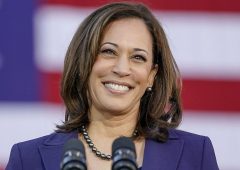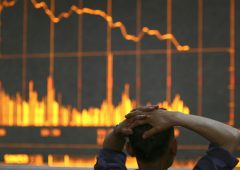Rate Cuts Expected as Fed Balances Inflation and Employment
28.07.2024 18:00 2 min. read Alexander Stefanov
Federal Reserve officials are approaching a decision to lower borrowing costs within the next few months. Chair Jerome Powell might hint at this move soon, as concerns grow about impacting a strong yet slowing job market.
The US central bankers, who have kept interest rates at a two-decade high for the past year, are anticipated to maintain the current rates during their two-day meeting ending on Wednesday. However, investors predict a rate cut in September.
Recent economic data has been encouraging, with slower price increases and strong growth. Nonetheless, the Fed seeks further assurance that inflation will continue to decline towards their 2% target.
With decreasing inflation pressures and a slight rise in unemployment, the Fed’s goals of maximum employment and stable prices are becoming more balanced. The officials aim to control inflation without harming the labor market by keeping rates high for too long.
This makes the upcoming monthly jobs report on Friday, along with other labor market indicators, particularly significant.
The July employment report is expected to show continued moderation in hiring, with nonfarm payrolls projected to increase by 178,000. The unemployment rate, which has risen over the past three months, is expected to remain at 4.1%.
Hurricane Beryl, which hit Texas earlier this month, could affect hours worked, adding an element of unpredictability. Additionally, new data on job openings and quitting, set for release on Tuesday, will be closely monitored.
The Conference Board’s consumer confidence index, also due on Tuesday, will provide insights into consumer sentiment. Investors will also review the Institute for Supply Management’s factory report on Thursday for an update on the manufacturing sector.
Bloomberg Economics notes that most Fed officials are likely to agree that the risks to the central bank’s full employment mandate are balanced with the risks to inflation. There is expected to be a consensus that a rate cut will be appropriate soon, though the exact timing might vary.
-
1
U.S. PCE Inflation Rises for First Time Since February, Fed Rate Cut Likely Delayed
27.06.2025 18:00 1 min. read -
2
Key U.S. Economic Events to Watch Next Week
06.07.2025 19:00 2 min. read -
3
Gold Beats U.S. Stock Market Over 25 Years, Even With Dividends Included
13.07.2025 15:00 1 min. read -
4
U.S. Announces Sweeping New Tariffs on 30+ Countries
12.07.2025 16:30 2 min. read -
5
US Inflation Heats Up in June, Fueling Uncertainty Around Fed Cuts
15.07.2025 16:15 2 min. read
US Inflation Heats Up in June, Fueling Uncertainty Around Fed Cuts
U.S. inflation accelerated in June, dealing a potential setback to expectations of imminent Federal Reserve rate cuts.
Gold Beats U.S. Stock Market Over 25 Years, Even With Dividends Included
In a surprising long-term performance shift, gold has officially outpaced the U.S. stock market over the past 25 years—dividends included.
U.S. Announces Sweeping New Tariffs on 30+ Countries
The United States has rolled out a broad set of new import tariffs this week, targeting over 30 countries and economic blocs in a sharp escalation of its trade protection measures, according to list from WatcherGuru.
Key U.S. Economic Events to Watch Next Week
After a week of record-setting gains in U.S. markets, investors are shifting focus to a quieter yet crucial stretch of macroeconomic developments.
-
1
U.S. PCE Inflation Rises for First Time Since February, Fed Rate Cut Likely Delayed
27.06.2025 18:00 1 min. read -
2
Key U.S. Economic Events to Watch Next Week
06.07.2025 19:00 2 min. read -
3
Gold Beats U.S. Stock Market Over 25 Years, Even With Dividends Included
13.07.2025 15:00 1 min. read -
4
U.S. Announces Sweeping New Tariffs on 30+ Countries
12.07.2025 16:30 2 min. read -
5
US Inflation Heats Up in June, Fueling Uncertainty Around Fed Cuts
15.07.2025 16:15 2 min. read



